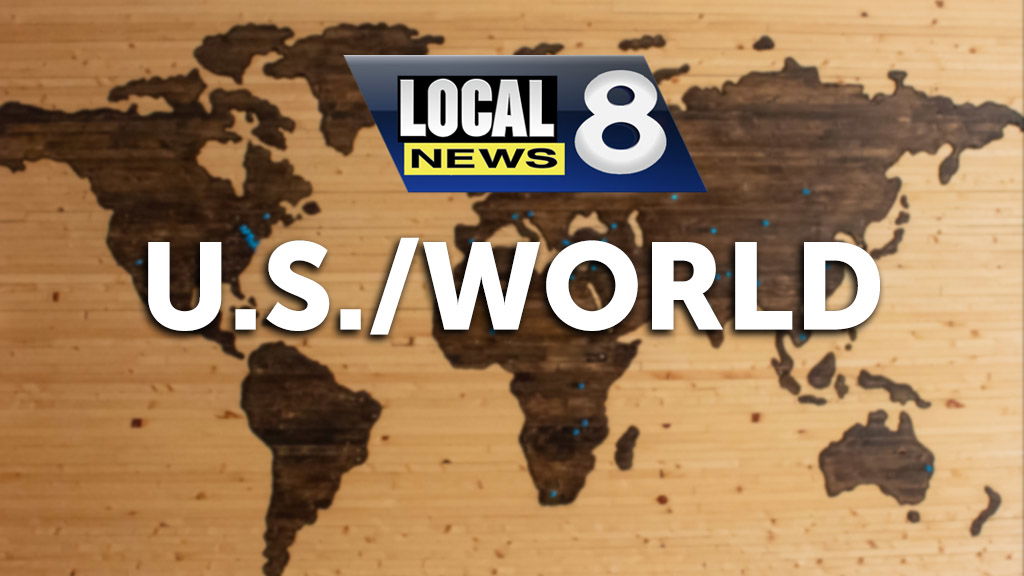President-elect Donald Trump’s lawyers urge judge to toss his hush money conviction

Associated Press
NEW YORK (AP) — President-elect Donald Trump’s lawyers formally asked a judge Monday to throw out his hush money criminal conviction, arguing that continuing the case would present unconstitutional “disruptions to the institution of the Presidency.“
In a filing made public Tuesday, Trump’s lawyers told Manhattan Judge Juan M. Merchan that anything short of immediate dismissal would undermine the transition of power, as well as the “overwhelming national mandate” granted to Trump by voters last month.
They also cited President Joe Biden’s recent pardon of his son, Hunter Biden, who had been convicted of tax and gun charges.
“President Biden asserted that his son was ‘selectively, and unfairly, prosecuted,’ and ‘treated differently,’” Trump’s legal team wrote. Manhattan District Attorney Alvin Bragg, they claimed, had engaged in the type of political theater “that President Biden condemned.”
Prosecutors will have until Dec. 9 to respond. They have said they will fight any efforts to dismiss the case but have indicated a willingness to delay the sentencing until after Trump’s second term ends in 2029. In their filing Monday, Trump’s attorneys dismissed the idea of holding off sentencing until Trump is out of office as a “ridiculous suggestion.”
Following Trump’s election victory last month, Merchan halted proceedings and indefinitely postponed his sentencing, previously scheduled for late November, to allow the defense and prosecution to weigh in on the future of the case. He also delayed a decision on Trump’s prior bid to dismiss the case on immunity grounds.
Trump has been fighting for months to reverse his conviction on 34 counts of falsifying business records to conceal a $130,000 payment to porn actor Stormy Daniels to suppress her claim that they had sex a decade earlier. He says they did not and denies any wrongdoing.
The defense filing was signed by Trump lawyers Todd Blanche and Emil Bove, who represented Trump during the trial and have since been selected by the president-elect to fill senior roles at the Justice Department.
Taking a swipe at Bragg and New York City, as Trump often did throughout the trial, the filing argues that dismissal would also benefit the public by giving him and “the numerous prosecutors assigned to this case a renewed opportunity to put an end to deteriorating conditions in the City and to protect its residents from violent crime.”
Clearing Trump, the lawyers added, would also allow him to “to devote all of his energy to protecting the Nation.”
Merchan hasn’t yet set a timetable for a decision. He could decide to uphold the verdict and proceed to sentencing, delay the case until Trump leaves office, wait until a federal appeals court rules on Trump’s parallel effort to get the case moved out of state court or choose some other option.
An outright dismissal of the New York case would further lift a legal cloud that at one point carried the prospect of derailing Trump’s political future.
Last week, special counsel Jack Smith told courts that he was withdrawing both federal cases against Trump — one charging him with hoarding classified documents at his Florida estate, the other with scheming to overturn the 2020 presidential election he lost — citing longstanding Justice Department policy that shields a president from indictment while in office.
The hush money case was the only one of Trump’s four criminal indictments to go to trial, resulting in a historic verdict that made him the first former president to be convicted of a crime.
Prosecutors had cast the payout as part of a Trump-driven effort to keep voters from hearing salacious stories about him. Trump’s then-lawyer Michael Cohen paid Daniels. Trump later reimbursed him, and Trump’s company logged the reimbursements as legal expenses — concealing what they really were, prosecutors alleged.
Trump has said the payments to Cohen were properly categorized as legal expenses for legal work.
A month after the verdict, the Supreme Court ruled that ex-presidents can’t be prosecuted for official acts — things they did in the course of running the country — and that prosecutors can’t cite those actions to bolster a case centered on purely personal, unofficial conduct.
Trump’s lawyers cited the ruling to argue that the hush money jury got some improper evidence, such as Trump’s presidential financial disclosure form, testimony from some White House aides and social media posts made during his first term.
Prosecutors disagreed and said the evidence in question was only “a sliver” of their case.
If the verdict stands and the case proceeds to sentencing, Trump’s punishments would range from a fine to probation to up to four years in prison — but it’s unlikely he’d spend any time behind bars for a first-time conviction involving charges in the lowest tier of felonies.
Because it is a state case, Trump would not be able to pardon himself once he returns to office.
___
